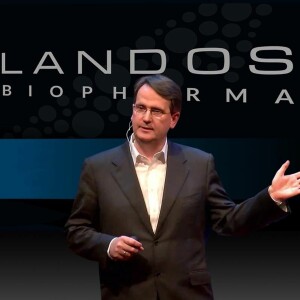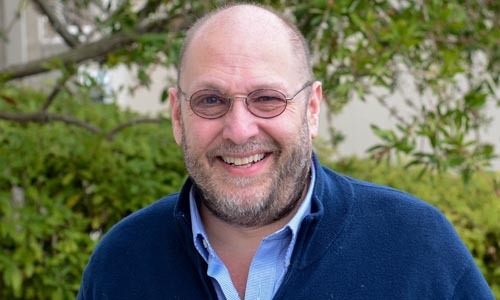Episodes

Thursday Jan 24, 2019
A Drug Hunter Finds Greater Freedom at a Nonprofit Institute
Thursday Jan 24, 2019
Thursday Jan 24, 2019
Atrial fibrillation, a condition characterized by an irregular and rapid heartbeat, affects up to 6.1 million Americans and can cause strokes. It is not well addressed by current medical approaches. Chris Larson, an adjunct associate professor at Sanford Burnham Prebys Medical Discovery Institute is part of a team working to find new drugs to treat the condition by identifying every gene in the human genome that can affect the rhythm of the heart. We spoke to Larson about the condition, SBP’s drug discovery efforts, and why he left industry to work on drug discovery at a non-profit institute.

Thursday Jan 17, 2019
Attacking IBD Through a Novel Pathway
Thursday Jan 17, 2019
Thursday Jan 17, 2019
Current therapies for autoimmune diseases represent a $100 billion market, but available drugs often provide limited benefits to patients or cause problematic side effects. Landos Biopharma is targeting the area of autoimmune diseases with an initial focus on inflammatory bowel disease by pursuing therapies that target a novel pathway. We spoke to Landos founder and CEO Josep Bassaganya-Riera, about IBD, why new therapies are needed, and the approach Landos is taking.

Thursday Jan 10, 2019
Writing the Future of Drug Research with Bioink
Thursday Jan 10, 2019
Thursday Jan 10, 2019
The ability to print human tissue is changing the way drug research is conducted today and opens the possibility of one-day printing replacement organs with the technology. CellInk saw an opportunity in making bioinks and started to produce a line of lower-priced printers as well in the hopes of expanding the marketing by lowering the cost of the technology. We spoke to Erik Gatenholm, CEO and co-founder of CellInk, about the technology, how its being used today, and how he expects applications for it to evolve.

Thursday Jan 03, 2019
An Effort to Develop Safer and More Effective Immunotherapies
Thursday Jan 03, 2019
Thursday Jan 03, 2019
Bing Wang trained as an electrical engineer, but his experience as a cancer survivor led him into the world of healthcare investment banking and then to his current role as CEO of the cancer therapeutics company Refuge Biotechnologies. Refuge is leveraging CRISPR technology, but rather than editing genes, the company is using it as a way to activate or inhibit specific genes by harnessing it for its targeting mechanism. We spoke to Wang about his own journey from patient to CEO, the company’s technology, and why he believes this will lead to safer and more effective cancer therapies.

Thursday Dec 27, 2018
The Year in Biotech and What to Watch in 2019
Thursday Dec 27, 2018
Thursday Dec 27, 2018
As the year draws to a close, we continue what’s become an annual tradition and look back on the year in biotech and ahead to the J.P. Morgan Healthcare Conference and beyond with Adam Feuerstein, senior biotech writer for STAT News. Adam tries to make sense of a puzzling year for biotech that seemed full of contradictions, offers some thoughts on the highs and lows of the past 12 months, and discusses what he’ll be watching for during the J.P. Morgan Healthcare Conference.

Thursday Dec 20, 2018
Why One Investor Is Betting on Platform Technologies to Change the World
Thursday Dec 20, 2018
Thursday Dec 20, 2018
The ability to manipulate and understand biology at the molecular level coupled with powerful computing capabilities is opening up new possibilities to harness technology to improve human health. The OS Fund is focused on investing in entrepreneurs developing platform technologies that have the ability to address global problems. We spoke to Bryan Johnson, co-founder of the OS Fund, about his investment vision, what it takes to attract his eye, and how he sees these platform technologies reshaping the world healthcare and beyond.

Thursday Dec 13, 2018
Thursday Dec 13, 2018
Paul Keckley is a long-time healthcare policy analyst whose both worked within hospital systems and advised major healthcare organizations, but when he recently collapsed on a golf course due to severe dehydration, he was given an up-close and personal view of the murky world of hospital billing. We spoke to Keckley about his experience, the challenges of deciphering hospital bills, and why he thinks it will be market forces, rather than price transparency, that rein in healthcare costs.

Thursday Dec 06, 2018
How a Leading Health Sciences University is Working to Address Homelessness
Thursday Dec 06, 2018
Thursday Dec 06, 2018
Matt State is known for his work trying to understand the biology underlying psychiatric illnesses, but as the chairman of the University of California, San Francisco’s Department of Psychiatry, part of his job has been to help address the city’s homelessness crisis. Homelessness is a complex issue, but the role mental health plays in the problem is often overlooked. With about 10,000 people who are homeless in San Francisco, more than a third of these people have a psychiatric or substance abuse problem. We spoke to State about the connection between homelessness and mental health issues, UCSF’s efforts in this area, and how it fits with the mission of a leading public institution.

Daniel Levine
Daniel Levine is an award-winning business journalist who has reported on the life sciences, economic development, and business policy issues throughout his career. He is founder and principal of Levine Media Group, host of The Bio Report and RARECast podcasts, a senior fellow at the Center for Medicine in the Public Interest, and author of Global Genes’ annual NEXT report on emerging trends in the world of rare disease. From 2011 to 2014, he served as the lead editor and writer of Burrill & Company’s acclaimed annual book on the biotech industry. His work has appeared in numerous national publications including The New York Times, The Industry Standard, and TheStreet.com.

